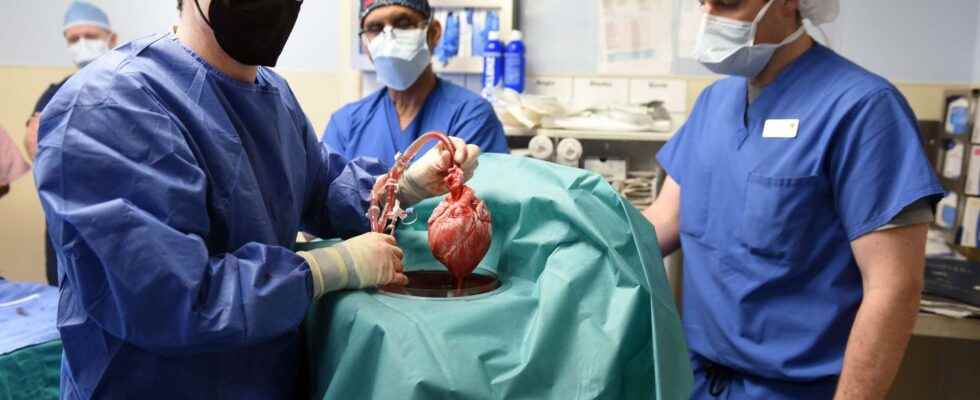Doctors in Baltimore, Maryland have successfully performed a unique xenograft. A genetically modified pig’s heart has been transplanted into a 57-year-old man with terminal heart disease.
At 57, David Bennett, a resident of Maryland in the United States, is sentenced to live in a hospital bed due to severe heart disease. His state of health does not allow him to be eligible for a graft heart and his arrhythmia problems deprive him of a artificial heart. Doctors at the University of Maryland then offered him a final experimental remedy: to be grafted a genetically modified pig heart. An operation never before performed on a patient with terminal heart disease.
David Bennett accepts: ” it was either to die or to do this transplant. I want to live. I know it’s a hit and miss, but it’s my last choice », He explains. The operation took place on January 7, 2022 and according to the press release from the University of Maryland, which traces this incredible operation, David Bennett is gate well, three days after the transplantation.
A humanized pig’s heart transplanted
The transplanted heart comes from a genetically modified pig. A total of ten modifications genetics were made to maximize the chances of a successful transplant: three genes deleted to limit rejection, six human genes added so that the heart is better accepted by immunity and a last gene to contain the growth of pig tissue. The heart was taken from the animal by the same surgeons who performed the transplant and placed in a special box which kept it alive. ex vivo before his transplant.
Preliminary animal studies have shown that a pig’s heart grafted onto a monkey operated beyond three years. Based on this data and on David’s desperate case, the FDA authorized this experiment on a compassionate basis. There is still a lot of unknowns around xenografts for these operations to become routine procedures. Do the benefits for patients outweigh the risks? ” The success of the procedure provided valuable information to help the medical community improve this potentially life-saving method in future patients. Said Muhammad M. Mohiuddin, one of the professors of surgery who performed the transplant.
One more step towards xenografts
If this type of operation is a hope for patients waiting for a transplant, the use of xenografts also raises important ethical questions on the use of animal organs in human medicine, but also around all the experiments. animals that this requires.
In 2020, 370 heart transplants were performed in France. Patients are transplanted, in most cases, within one year of enrollment. But for some, this delay is too long and their state of health deteriorates before an organ is available. The use of xenografts may reduce the wait in the future. ” This transplantation is revolutionary, and one more step in the study of xeno-organs for human use Said David Ayares, Scientific Director of Revivicor Inc., the company that supplied the pig to the doctors.
Interested in what you just read?
.
fs6
